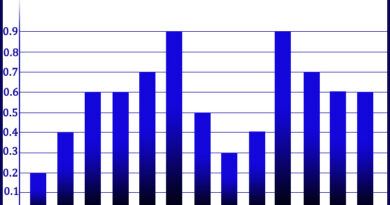Funds set to walk back ethical claims amid ‘greenwashing’ crackdown
Super funds and investment firms are likely to water down their ethical investing claims in coming months after a regulatory crackdown on “greenwashing” – misrepresentation of the extent to which their strategies are environmentally friendly, sustainable or ethical.
Morningstar ESG analyst Erica Hall says the regulatory focus on greenwashing in Australia and around the world will mean more fund managers rethink what they say about sustainable investing.
Morningstar analyst Erica Hall says some fund managers are pulling-back their ethical investment claims for fear of coming under scrutiny by the regulator.Credit:Eamon Gallagher
The Australian Securities and Investments Commission (ASIC) began a review of investment managers and their green claims last year, resulting in a number of funds paying fines and, for the first time, a manager being taken to court over allegations of greenwashing.
More and more investors want their retirement savings and other investments to be invested ethically, particularly in mitigating climate change.
More than $25 billion flowed into responsible investments that have been certified by the Responsible Investment Association of Australasia (RIAA) in 2022. The inflow in 2017 was $10 billion, figures from Plan for Life – which include New Zealand – show.
Two of the world’s largest fund managers have been called out by ASIC. Late last year, Vanguard Investments Australia paid a fine of almost $40,000 over claims one of its investment products excluded tobacco investments, but in reality, it did not exclude companies involved in the sale of tobacco products. Vanguard made no admission of guilt or liability.
ASIC last month upped the ante when it began its first civil penalty court proceedings against Mercer Superannuation Australia over allegations of greenwashing.
It alleges Mercer made statements on its website about some of its investment options including that they are suitable for members who “are deeply committed to sustainability”. ASIC alleges the investment options had investments in companies involved in industries the website statements said were excluded.
ASIC recently told the Australian Financial Review that it is investigating several super funds for suspected greenwashing.
“I suspect that [those investigations] will result in court action and if they don’t result in court action, they’ll result in certainly infringement notice action,” ASIC commissioner Danielle Press said.
Morningstar’s Hall says the phenomenon of “greenhushing”, in which investment managers row back on some of their green claims in the face of greater scrutiny by regulators, is causing some to leave international agreements on climate change.
They want to avoid being “backed in a corner”, as some of those agreements are being made more prescriptive, she says, and some managers worry they may not be able to deliver on the commitments.
Simon O’Connor, the chief executive of RIAA, says just because funds are getting more cautious about the language they use in light of regulator activity does not always mean they are stepping away from commitments.
“I think this is healthy as we are getting more precise use of language in products, fewer broad sweeping terms and more precision,” O’Connor says.
“An investor should be able to see a fund manager and see that for them fossil fuel exclusion means thermal coal and … for someone else it is oil and gas,” he says.
Will Van De Pol, asset management campaigner at Market Forces, a climate change lobby group, says the regulator’s crackdown is “great, as we need much more clarity and transparency”.
“It’s good that … investment managers will find it harder to get away with dodgy or misleading claims, but they shouldn’t be walking back those claims – they should be doing [more] to live up to them,” he says.
Angela Ashton, founder of Evergreen Consultants, says more managers are looking to under-promise and over-deliver. She says there are lots of fund managers that manage the money with environmental, social and governance (ESG) but do not call their funds “sustainable”.
They are doing that because they recognise that investing with ESG enhances their investment performance. And it is not just about climate. Ashton says there is a lot of research that shows that companies with more diverse management teams, for example, have better performances.
Investors worried about whether their funds are really as green as they claim can check to see if their fund is certified by the RIAA at responsiblereturns.com.au.
- Advice given in this article is general in nature and is not intended to influence readers’ decisions about investing or financial products. They should always seek their own professional advice that takes into account their own personal circumstances before making any financial decisions.
The Money with Jess newsletter helps you budget, earn, invest and enjoy your money. Sign up to get it every Sunday.
Most Viewed in Money
From our partners
Source: Read Full Article




